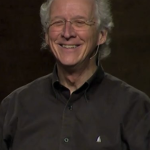Original source here:
Jason Meyer, pastor for preaching and vision at Bethlehem Baptist Church in Minneapolis, gave a powerful and important sermon this past Sunday.
In it, he defined things like “hyper-headship”:
Hyper-headship is a satanic distortion of male leadership, but it can fly under the radar of discernment because it is disguised as strong male leadership. Make no mistake—it is harsh, oppressive, and controlling. In other words, hyper-headship becomes a breeding ground for domestic abuse.
Meyer also addressed the issue of domestic abuse, highlighting three lessons in particular they had learned:
Not all abuse cases are the same, even though they may share certain things in common. If you have seen one abuse case, you have seen one abuse case.
We need to distinguish between two types of marital sinfulness: normative sinfulness and abusive sinfulness.
There are spectrums and varieties of domestic abuse. A good working definition of domestic abuse is “a godless pattern of abusive behavior among spouses involving physical, psychological, and/or emotional means to exert and obtain power and control over a spouse for the achievement of selfish ends” (John Henderson).
Calling it a “draw-a-line-in-the-sand kind of moment” for the church, Meyer read a statement from the elders about domestic abuse:
We, the council of elders at Bethlehem Baptist Church, are resolved to root out all forms of domestic abuse (mental, emotional, physical, and sexual) in our midst. This destructive way of relating to a spouse is a satanic distortion of Christ-like male leadership because it defaces the depiction of Christ’s love for his bride. The shepherds of Bethlehem stand at the ready to protect the abused, call abusers to repentance, discipline the unrepentant, and hold up high the stunning picture of how much Christ loves his church.
The statement goes on to give information about whom to contact when abuse is occurring.
Meyer addressed abusers:
If you are an abuser, I call you right now to repent and bear fruit in keeping with repentance. The only hope is on the other side of repentance—getting out of denial so you can own your sin. That is the only hope because if you confess it as sin, there is a sacrifice for sin. There is no sacrifice for denial.
He addressed victims:
If you are being abused, the bulletin gives information on next steps. Please let us help. God hates abuse, and so do we. We are committed to help. If you have come to us for help before and have been disappointed, please give us another chance. We believe that the tide of awareness has risen on all three campuses and that positive changes are happening.
And he addressed children:
If you are a child and have seen one of your parents abuse the other, it is not right, and it is not your fault. You are not to blame. We want to get you help as well. You may think telling someone will tear your family apart, but it may be the only thing that can bring your family back together. If you are a child and you are being abused, let us help. Don’t walk this road alone. Tell someone. Please tell the children’s pastor or your youth pastor or a Sunday school worker.
He then closed with an address to men in particular:
Men of Bethlehem, let me address you. I will lay it on the line. At first glance, it looks like there are three possible doors the men of this church can take.
Door 1: side with the abusers
Door 2: take no side, or
Door 3: side with the abused and stand up to the abusers.
If you are tempted to open Door 2, please know that it is a slide that just takes you to the same place as Door 1. Doing nothing is doing something: it is looking the other way so the abusers can do their thing without worrying who is watching. Saying nothing is saying something—it’s saying, “Go ahead, we don’t care enough to do anything.”
I would strongly encourage you to read the entire sermon, which contains careful definitions of the various kinds of abuse and various principles about abuse. You can listen to the audio here.
For some resources on abuse, see Justin and Lindsey Holcomb’s resources:
Rid of My Disgrace: Hope and Healing for Victims of Sexual Assault
Rid of My Disgrace: Small Group Discussion Guide
Is It My Fault? Hope and Healing for Those Suffering Domestic Violence
God Made All of Me: A Book to Help Children Protect Their Bodies (forthcoming in September)
See also:
Edward Welch, Living with an Angry Spouse: Help for Victims of Abuse
David Powlison, Recovering from Child Abuse: Healing and Hope for Victims
John Henderson, Abuse: Finding Hope in Christ
Deepak Reju, On Guard: Preventing and Responding to Child Abuse at Church
Paul Tripp, David Powlison, Ed Welch, Domestic Abuse: How to Help
Diane Langberg, Bringing Christ to Abused Women: Learning to See and Respond



